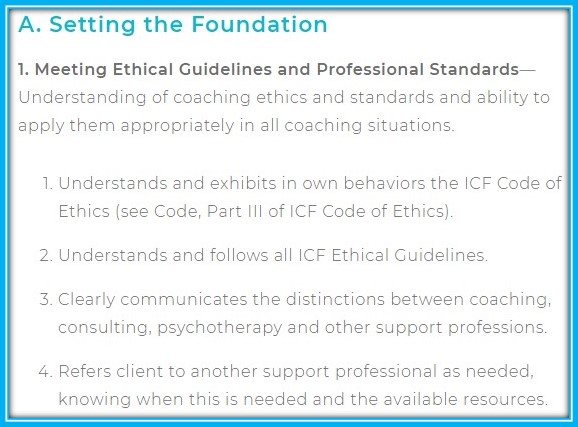
Today I had coffee with a neighbor as an informal networking meeting and tackled an important question about when a coach should refer a client to therapy.
After getting introduced through a neighborhood gathering, we realized that we are in adjacent fields and decided to get to know each other as potential sources of referrals.
Importance of referrals for coaches
I recently launched an executive coaching business, and she practices as a therapist in her own small business.
Referrals are important in businesses like coaching and therapy. Referrals can happen in order to make a better chemistry match for the client, connect to a specialist, improve logistical or financial considerations and a variety of other reasons.
ICF Requirements
If a client needs deeper work or medication, I will refer to an appropriate professional. My coaching accreditation comes through International Coach Federation (ICF) which provides clear guidance on the need to make referrals.
ICF covers the need for referrals in the Coaching Core Competencies and Ethical Guidelines.

But these guidelines cover the need to refer to other support professions but cannot clearly indicate every circumstance in which it would be necessary.
Overlap on topics like anxiety
Among other things, one of the therapist’s specialties is helping with anxiety and depression.
In executive coaching, I also coach around issues of anxiety, stress and burnout related to work.
This sparked a question for me.
Where is the line between a topic suitable for executive coaching and one for therapy?
Where is the line between coaching and therapy?

Fundamentally, there are some clear topics that belong in therapy and not in coaching.
For example, deep discussions about personal histories, deep traumas, addictions, and diagnosed mental health issues clearly fall in the realm of therapy.
But other areas are less clear. Some topics cross the line between coaching and therapy. They might differ in intensity, type or focal location of the issue (work versus home).
Anxiety related to work and career is one of those blurry lines.
As we discussed anxiety and burnout, I asked her what triggers would clearly indicate that the client should move from executive coaching to therapy.
One answer: holding on to progress
As we discussed it, we landed on an answer that feels solid and actionable.
In coaching, the client and I would discuss anxiety and burnout as related to work and identify practical behaviors to try and overcome the issues.
Over time, the client would practice the behaviors, modify as needed and start to see improvement.
The sign that the client should be referred to therapy would be that the client can’t seem to hold on to the progress.
Advancing and holding on to progress indicates that coaching is working.
If the client continues to stall or can’t sustain or spins in place, the coaching is not working. If the anxiety seems stronger than the ability for the client to overcome it and make forward progress, then therapy could be the answer.
Summary
Coaching should result in behavior change and forward progress. If progress stalls and mental health seems out of control, the coach should suggest the idea of therapy and be prepared with a referral.
Ultimately a coach serves the needs of the client. Sometimes those needs require professionals with a different type of training.



